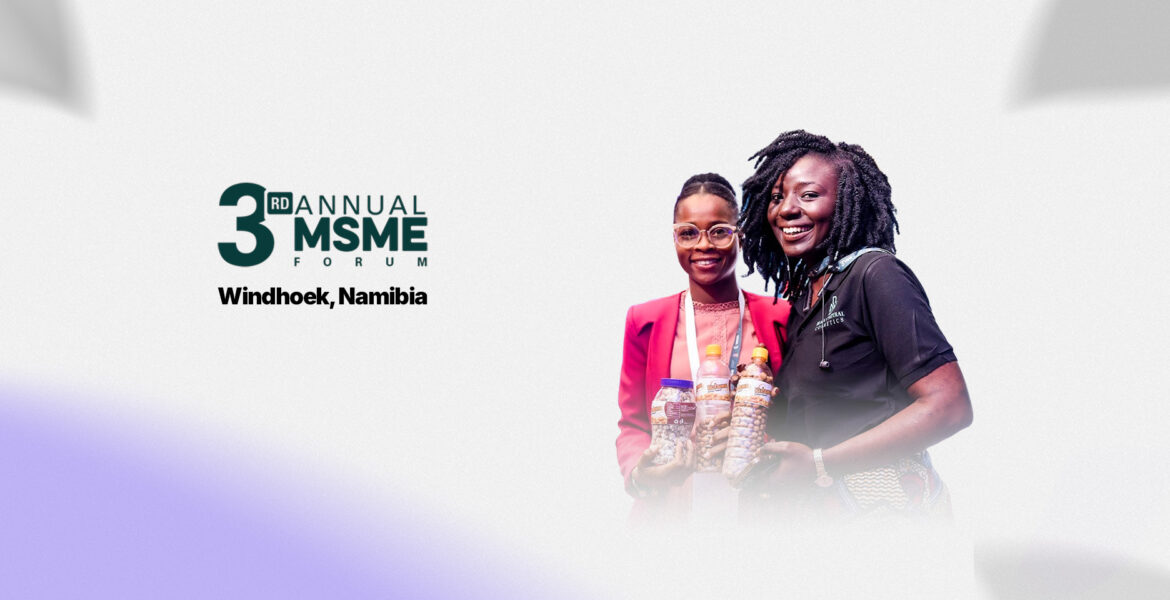The 3rd Annual African Union Micro, Small, and Medium Enterprises (MSME) Forum, held in Windhoek, Namibia, served as a robust platform for MSMEs, policymakers, and innovators to network, learn and exchange transformative ideas. Featuring over 350 participants from across the continent, the forum that was held under the theme “Fostering Financial Empowerment and Educational Innovation for African Startups & MSMEs,” offered practical insights, tools, and strategies to help African entrepreneurs scale their businesses.
Below are some of the key success takeaways from the forum that African entrepreneurs, especially women, can leverage to grow their ventures.
Trading under the AfCFTA; The Digital tools and resources you need to know!
The African Continental Free Trade Area (AfCFTA) offers immense opportunity, but navigating it can be complex. Fortunately, there are tools, platforms, and resources designed to help you master intra-African trade.
During the panel discussion on how MSMEs can take advantage of the integrated African market under AfCFTA, Cynthia Gnassingbe-Essonam, Senior Advisor on Private Sector Engagement at the AfCFTA Secretariat, shared insights, tools, and resources that MSMEs can use to benefit from the AfCFTA.
Cynthia emphasized the importance of the e-Tariff Book, which is live on the AfCFTA Secretariat’s website and provides transparent information on tariffs for different product lines. “The e-Tariff Book brings together all the different tariffs that apply to the various products we are trading on the continent. So any trader, importer, or exporter can go on the e-Tariff Book, check the country, know your HS code, type in your HS code, and it will give you the tariffs,” she explained. However, she noted that tariff reductions are progressive, and they are aiming for zero tariffs by 2035.
The Manual of Rules of Origin is also available on the AfCFTA website. This manual helps businesses understand the origin requirements for products that determine where a product comes from. Cynthia said, “More than 90% of products have agreed Rules of Origin. So, if you are in Togo and you produce this bottle of water, the rules of origin that will apply to this bottle of water in Togo will be the same rules of origin that will be applied if you establish the same factory in Kenya.”
“We also have the Non-Tariff Barrier Portal,” she noted, “where you can report any type of problems that you encounter when trading across borders.”
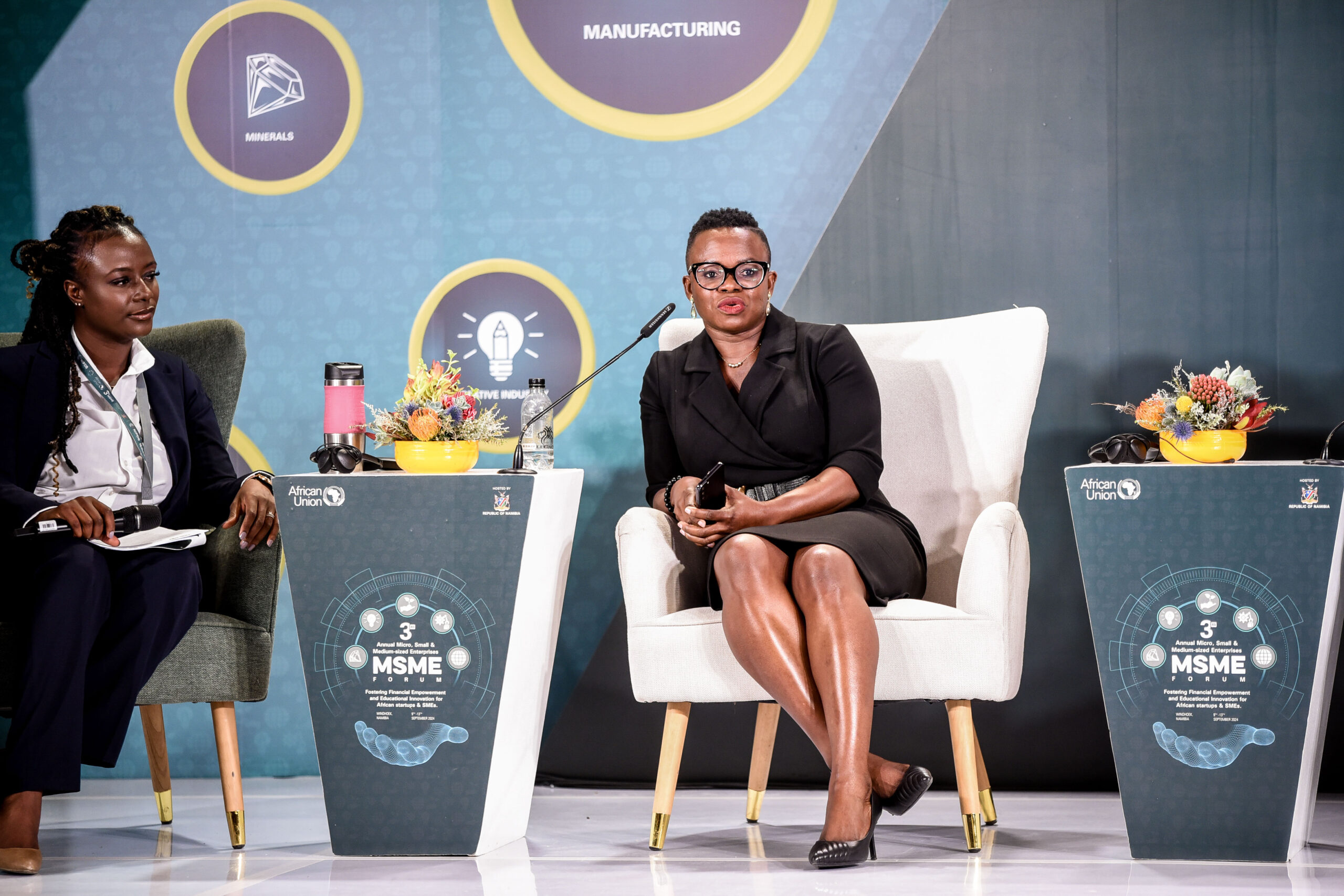
Finding Investors: Make strategic Partnerships and Explore Gender-Lens Investing
One of the most significant challenges for entrepreneurs, especially female founders, is finding the right investors. Speaking during a workshop themed “Catalyzing SME Excellence: Balancing Quality and Innovation While Scaling in the Global Market,” organized by ImpactHER in collaboration with the African Union’s Department of Economic Development, Trade Tourism, Industry, and Minerals (ETTIM) and Afreximbank, Christina von Doderer, Chief Investment Officer at Equity Investments Business Financial Solutions Ltd, shared her perspective on attracting investors and the importance of ‘not going at it alone’. According to Christina, investors are wary of businesses that rely solely on one individual. “Investors don’t like it when everything is focused on just one person. It’s actually a risk because what if something happens to that person?”
The solution? She advises entrepreneurs to seek assistance from credible platforms and networks. “Take up any help or assistance you can find. There are accelerators like Basecamp, NAB pitch nights, and other platforms to try and get exposure.”
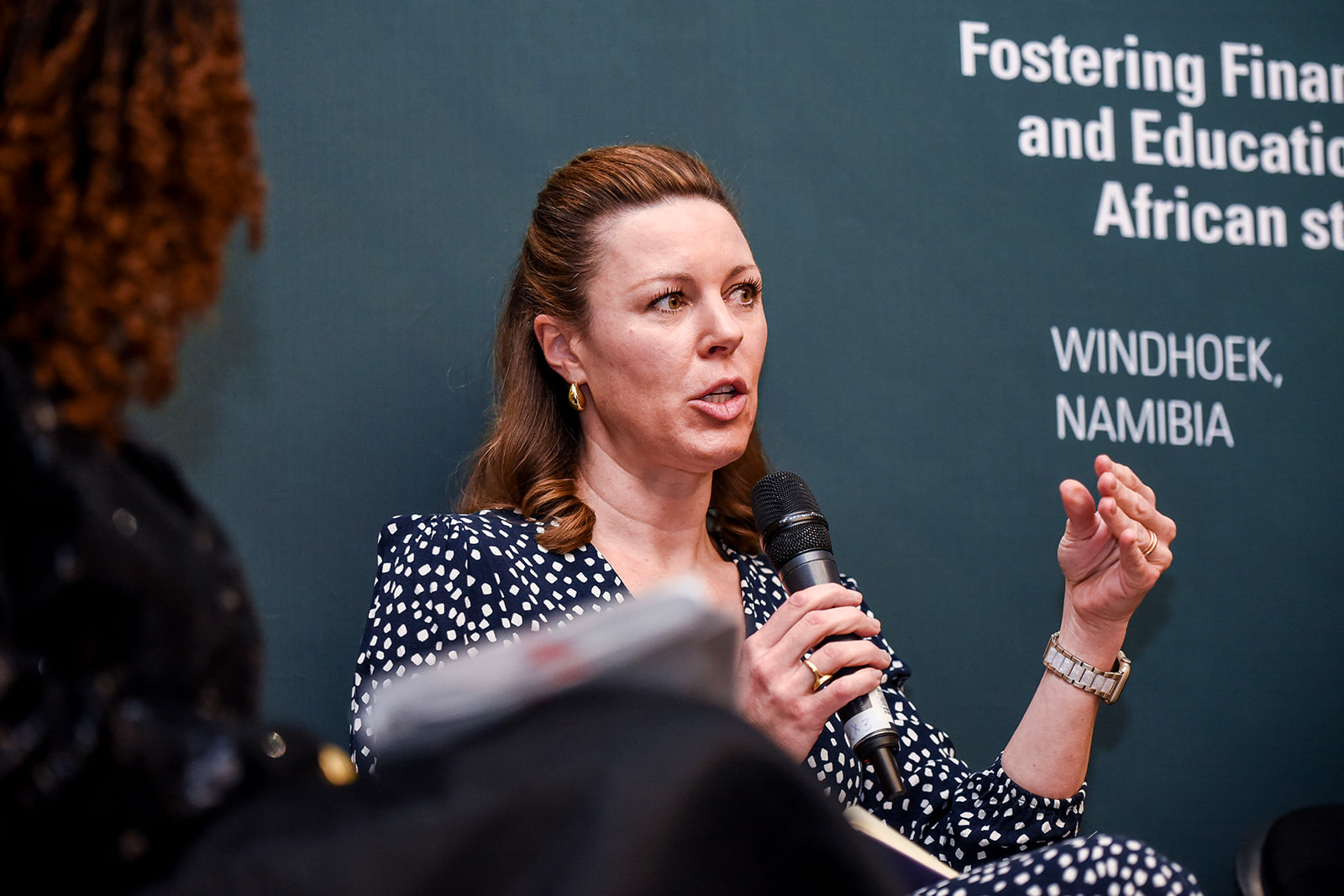
She emphasized that finding the right investor is like “winning the lottery.” Therefore, entrepreneurs need to conduct due diligence to ensure that they are aligning with the right investor. “Often, it is said that it’s a bit like a marriage. Make sure you know who you’re getting into business with because, just like marrying the wrong person can make your life miserable, choosing the wrong investor can do the same.”
However, she highlighted the growing trend of gender-lens investing, which focuses on supporting female-led ventures. “I am very happy to see a lot of gender-lens investing at the moment, where there’s really a focus on female founders. So, if you are a female founder, try going down that route,” she said.
Leverage Digital Tools
LucyMay Lubrani, Global Digital Transformation Strategist, also spoke during the same workshop, and emphasized the role of digital tools in scaling businesses. She highlighted Customer Relationship Management (CRM) systems, AI-powered analytics, and cloud computing as essential tools for African MSMEs.
“With omnichannel strategies, a centralized CRM gathers insights from every customer touchpoint. It visualizes those insights so you know who your best customers are, which products they love, and how you can serve them better. AI then helps you tailor your services based on this data,” LucyMay explained.
LucyMay also highlighted the importance of cost-effective cloud computing tools like Google Workspace, WhatsApp for Business, Zoom, and Otter.ai for automating meeting notes. For female entrepreneurs, who often juggle multiple responsibilities, these tools offer a way to streamline operations and focus on scaling their businesses.
“The bigger you are, the more complex it becomes. But even as a small business, using these digital tools can give you a competitive edge. Cloud computing, for example, allows you to scale without investing in expensive infrastructure,” she added.
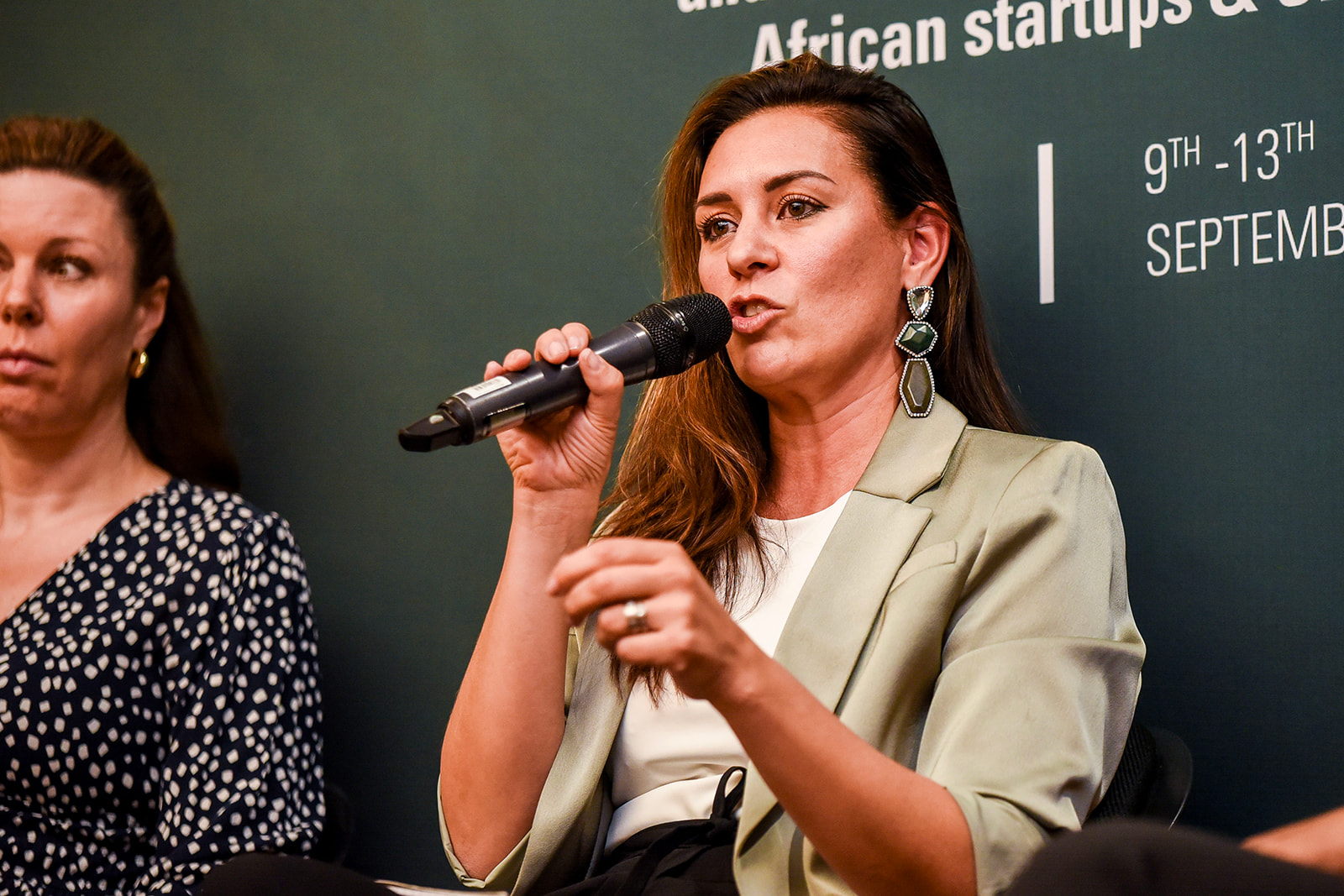
She also mentioned the rise of e-commerce as a critical platform for African businesses looking to expand globally. “With global markets opening through the internet, you can sell to Nigeria, the UK, Australia, or anywhere in the world with just an e-commerce platform,” she said, stressing that women entrepreneurs should tap into these technologies to gain a competitive edge.
Planning for Growth? Consider these questions
If you have been comfortable staying small, now could be the time to think about expanding.
Ambassador Albert Muchanga, African Union Commissioner for Economic Development, Trade, Industry, and Minerals challenged MSMEs with thought-provoking questions to help them assess their businesses and also encourage their growth.
“Is your enterprise registered? Does it maintain up-to-date books of account? Do you file monthly tax returns? How many employees does your business currently have? Does your business have any registered and protected trademarks as sources of branding and value? Does your enterprise have a business plan? My third set of questions is: Have you assessed your potential as an entrepreneur? If you have, are you going to develop your enterprise to make it grow, or do you want it to remain as it is: micro, small, or medium enterprise forever?” He asked.
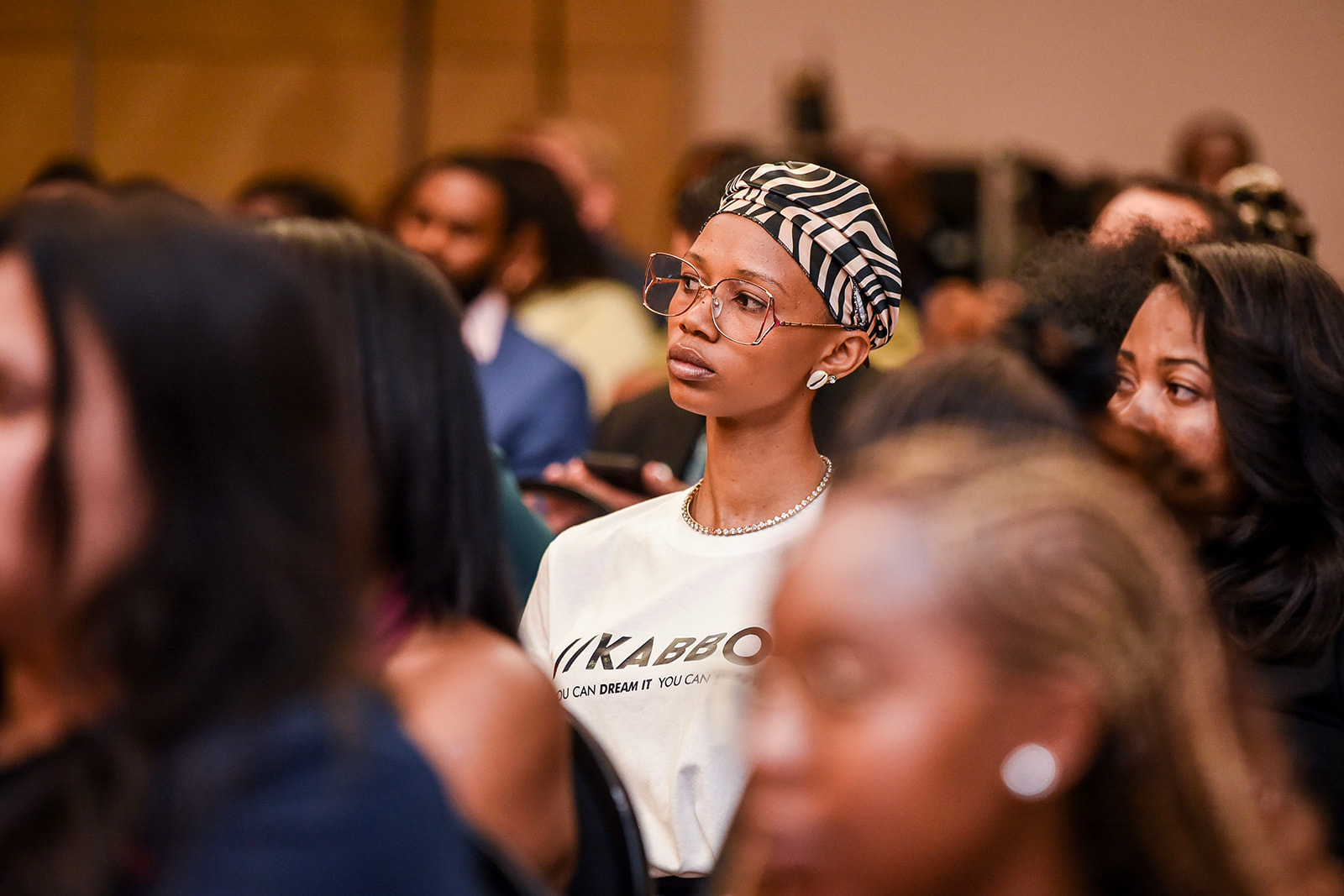
Understand Your Business Category
With the new standardized definition for Africa’s MSMEs, it is crucial to know where your business stands. Dr. Ron Osman Omar, Acting Head of Industry, Innovation, and Minerals Division at the African Union, unveiled this framework, which categorizes businesses based on their annual turnover. “A micro-enterprise is one with an annual turnover of less than $1 million, a small enterprise has between $1 million and $5 million, and a medium enterprise has between $5 million and $20 million,” she explained. Whether you’re in the micro, small, or medium category, these classifications will help guide your next steps, especially in terms of attracting investment and partnerships.
Overall, this year’s edition of the MSMEs Forum provided valuable lessons and tools. From leveraging digital tools to accessing markets under the AfCFTA, and from finding the right investors to collaborating through mentorship programs, the forum underscored the importance of strategic growth.
This article was produced as part of a series of our coverage of the 3rd Annual MSMEs Forum, in Windhoek, Namibia, courtesy of the African Union Media Fellowship.


